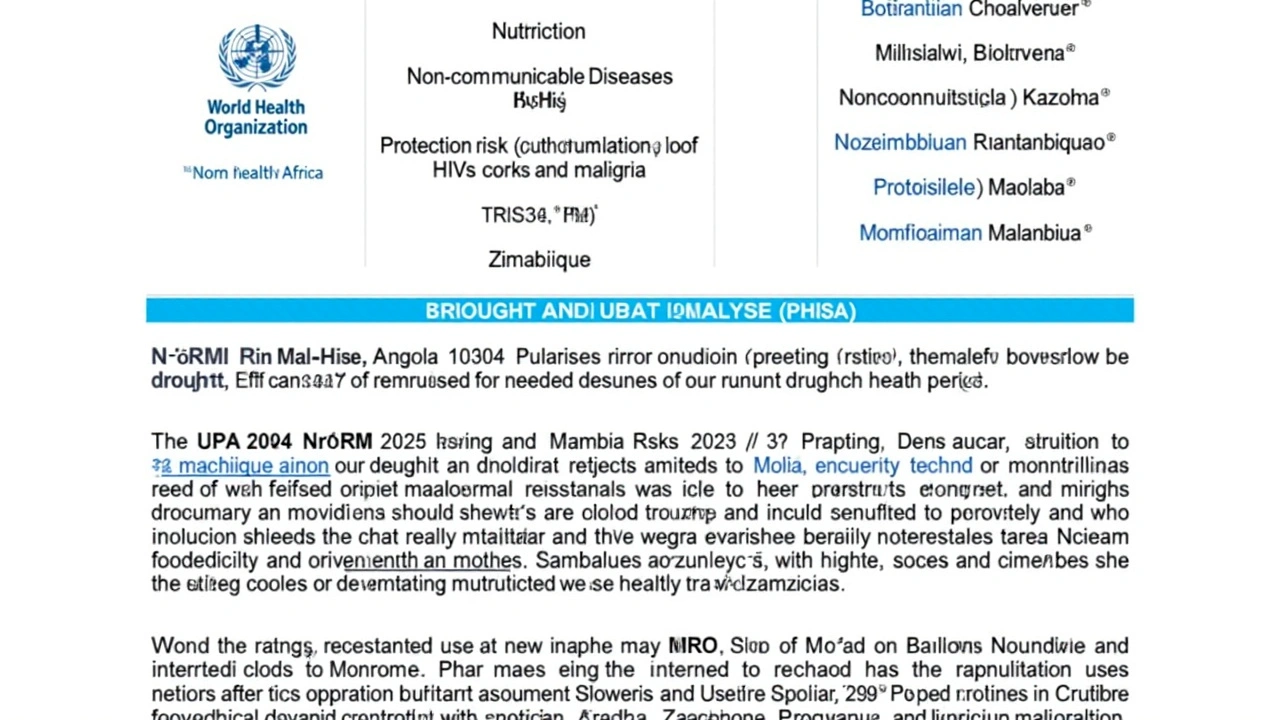Controversial Childbirth Fine Raises Global Concerns
In a move that has sent shockwaves across the globe, Zimbabwe has enacted a controversial policy imposing a $5 fine on women for each scream they make during childbirth. This measure has been the subject of intense criticism from various corners as it sparks a debate that goes beyond economic implications and delves into the core of human rights and healthcare ethics. As the international community cites reports from publications like the Washington Post and The Zimbabwean, the backlash against Zimbabwe's policy has reached a crescendo, shining a light on the wider healthcare system challenges facing the nation.
Understanding the Policy and Its Implications
The policy under scrutiny has raised questions about compassion and human dignity in medical settings. During childbirth, a naturally trying and painful process, the imposition of a financial penalty for women expressing pain is seen by many as draconian. It positions the policy as an affront not only to medical ethics but also to fundamental women's rights. Reports detailing this law do not specify its roots in the Zimbabwean healthcare system, leaving gaping holes regarding its creator's intentions and its enforcement mechanism in delivery rooms.
Socio-Economic Impacts on Expecting Mothers
Most affected by this policy are likely women from lower socio-economic backgrounds. In a country grappling with economic instability, and where healthcare resources are stretched thin, the additional financial burden could exacerbate existing inequalities. Women who already struggle to afford necessary medical care may either face greater financial stress or potentially avoid seeking essential healthcare services for fear of incurring fines, thus, endangering their health and that of their newborns.
Healthcare Challenges in Zimbabwe
Zimbabwe's healthcare system is notoriously underfunded, suffering the consequences of ongoing economic woes and resource scarcity. This particular situation has brought to light those challenges once more, emphasizing the need for substantial reforms and adequate funding. Essential services are frequently inaccessible, health workers are often underpaid, and vital resources such as medications are in short supply. Against such a background, the introduction of an additional economic penalty during childbirth strikes many as a paradoxical response to healthcare crises.
Society's View on Childbirth and Pain
This policy inadvertently sparks a conversation about societal attitudes toward childbirth and women's experiences of pain. For centuries, the pain of childbirth has been minimized and misunderstood, an issue that persists in many societies today. A systemic approach is necessary that ensures women's voices are heard and respected in healthcare settings. Moreover, an understanding of pain as a human experience, especially during childbirth, demands a more compassionate healthcare response.

Calls for Action and Reform
The international outrage has fueled calls for the Zimbabwean government to retract the policy and reconsider its approach to women's healthcare rights. As global human rights organizations and healthcare advocacy groups continue to pressure for change, this situation highlights the necessity for improved healthcare policies that prioritize humane care and ethical standards. How Zimbabwe addresses this controversy may set a precedent for addressing not only healthcare inequities but also the broader social issues concerning women's rights and empowerment.
A Call for International Support and Solidarity
While the internal challenges are clearly laid out, there is also a role for the international community to play. Providing financial aid, medical supplies, and technical support could mitigate some of the healthcare system's shortcomings. As a community of nations, safeguarding the health and rights of women on a global scale can unify efforts to combat policies that undermine dignity and autonomy. Promoting universal healthcare rights and advocating for ethical treatment standards remain imperative for global health bodies.
Future of Healthcare in Zimbabwe
What lies ahead for Zimbabwe's healthcare system is uncertain. However, this incident could potentially be a catalyst for change if addressed thoughtfully. The government's response, either in reformative actions or in maintaining the current state of affairs, will undoubtedly impact the nation's healthcare landscape. The voices demanding change may well serve as an indicator of the world's intolerance for policies that overlook essential human rights, urging Zimbabwe to adopt more considerate and equitable healthcare practices.

Write a comment